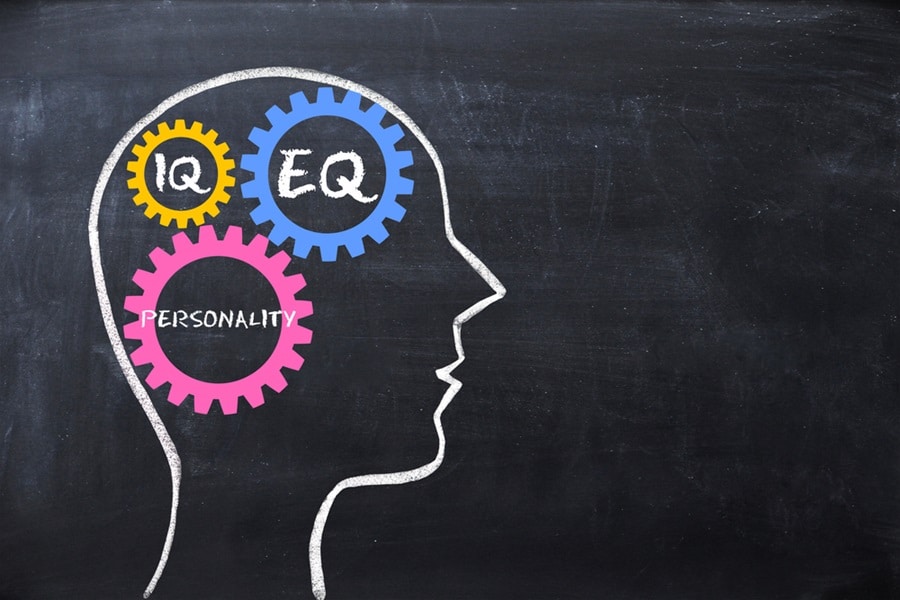Gratitude, a simple yet powerful emotion, serves as the cornerstone of personal happiness. As the key to unlocking a more joyful, vibrant life, its transformative power can be harnessed with minimal effort. More than a mere response to positivity, gratitude provides a gateway to appreciating the abundance in everyday life. When practicing gratitude, it becomes possible to cultivate a profound sense of well-being, contentment, and happiness.
Contents
- 1 What Is Gratitude?
- 2 Benefits Of Practicing Gratitude
- 3 Physical Health Benefits Of Gratitude
- 4 Mental Health Benefits Of Gratitude
- 5 Social Benefits Of Gratitude
- 6 Gratitude And Happiness
- 7 Gratitude And Mindfulness
- 8 Gratitude in the Workplace
- 9 Practical Ways To Practice Gratitude
- 10 Start Reaping The Benefits Of Practicing Gratitude Today!
What Is Gratitude?

Gratitude can be defined as an acknowledgement of the positive things, big or small, in life. From the warmth of the sun to the love of family and friends, everything can be a source of gratitude. It is a profound emotional state that implies more than a transient state of thankfulness. Gratitude encompasses a deeper recognition of positivity that extends far beyond a simple “thank you”.
Moreover, gratitude is intrinsically tied to personal well-being and happiness. By acknowledging and appreciating the good in life, one starts to focus more on positivity, thereby fostering a sense of satisfaction and joy. It’s a practice that shifts the focus from what is lacking to the abundance that already exists.
Benefits Of Practicing Gratitude

Diving into the transformative power of gratitude, one discovers a myriad of physical, mental, and social benefits. These benefits serve as the pillars of a healthier, happier life, and they will be examined in more detail in the subsequent sections.
Physical Health Benefits Of Gratitude

Embracing gratitude can significantly enhance physical health. Research shows that gratitude is linked to better sleep, improved immune function, and a higher tolerance for pain. It’s the practice of focusing on the positive aspects of life that fuels these improvements. For example, maintaining a gratitude journal can lead to better sleep hygiene by encouraging positive thoughts before bedtime, which in turn facilitates more restful sleep.
The physical health benefits of gratitude extend far beyond immediate improvements. Over time, a consistent gratitude practice can lead to long-term health benefits, including a reduced risk of diseases such as heart disease and diabetes. A gratitude-focused mindset encourages healthier lifestyle choices, such as regular exercise and balanced nutrition, both of which contribute to long-term well-being.
Mental Health Benefits Of Gratitude

Gratitude has a profound impact on mental health. Studies have demonstrated that gratitude can reduce symptoms of anxiety and depression. The act of acknowledging the positive aspects of life can alleviate negative thought patterns, ultimately leading to lower levels of anxiety and depressive symptoms.
In addition to reducing symptoms of mental health disorders, gratitude can lead to enhanced cognitive benefits. These include increased resilience and improved mental strength. By acknowledging and appreciating the good aspects of life, people are more likely to maintain a positive outlook during challenging times. This, in turn, promotes resilience and mental fortitude, acting as a shield against adversity.
Social Benefits Of Gratitude

In social contexts, gratitude plays an essential role in forging stronger relationships and promoting social connectivity. By expressing appreciation, one can enhance relationships, fostering a sense of trust and mutual respect. Gratitude also acts as a social glue, binding people together and promoting community cohesion.
Furthermore, gratitude can create a positive cycle in social interactions. Expressing appreciation can lead to reciprocated expressions of gratitude, encouraging a virtuous cycle of goodwill and appreciation. Such a cycle not only strengthens existing relationships but also fosters the creation of new ones.
Gratitude And Happiness

At its core, gratitude is intrinsically connected to happiness. The act of acknowledging and appreciating the good in life directly contributes to an increase in overall happiness. By fostering a sense of satisfaction and contentment, gratitude can help individuals lead more fulfilling lives.
Research has shown that maintaining a regular practice of gratitude can have a positive effect on mood and overall life satisfaction. By redirecting focus to the positives rather than dwelling on negatives, people can cultivate a more joyful state of mind. Ultimately, the practice of gratitude leads to an increased sense of happiness and a more fulfilling life experience.
Gratitude And Mindfulness

The practice of gratitude can also lead to heightened mindfulness. Acknowledging the good in every moment encourages presence and awareness, promoting a more balanced and peaceful state of mind. By expressing gratitude, one learns to live in the moment, appreciating life as it unfolds.
Moreover, the link between gratitude and mindfulness is reciprocal. As individuals become more mindful, they are also likely to experience increased levels of gratitude. This is because mindfulness encourages presence and awareness, making it easier to recognize and appreciate the good in life. In essence, gratitude and mindfulness reinforce each other, leading to a more balanced and peaceful mental state.
Gratitude in the Workplace

The importance of expressing gratitude extends to the workplace as well. Expressing gratitude in professional environments can lead to improved job satisfaction, increased team collaboration, and greater workplace productivity. It can foster a more positive and harmonious work environment, promoting individual and collective success.
Studies have shown that gratitude can lead to improved job performance and overall team cohesion. It’s been found that employees who feel appreciated and valued are more likely to be motivated and committed to their work. This, in turn, can lead to increased productivity and better team dynamics, promoting a healthier and more effective workplace environment.
Practical Ways To Practice Gratitude

There are numerous ways to incorporate gratitude into daily life. These range from maintaining a gratitude journal, acknowledging good moments mentally, incorporating gratitude in meditation, and expressing appreciation verbally. All these practices help cultivate a mindset of gratitude, leading to a more content and fulfilling life.
For instance, keeping a gratitude journal encourages one to write down the good things experienced during the day. This practice allows individuals to actively focus on positivity, reinforcing a gratitude-focused mindset. On the other hand, verbal expressions of gratitude can help strengthen social bonds, leading to improved relationships and social satisfaction.
Start Reaping The Benefits Of Practicing Gratitude Today!
Gratitude is more than an emotion; it’s a practice that can cultivate personal happiness and well-being. The physical, mental, and social benefits of gratitude are profound and far-reaching, transforming the way one interacts with the world. From fostering a healthier body and mind to enhancing relationships and workplace performance, the practice of gratitude holds the key to a more joyful and fulfilling life. So, it’s never too late to start practicing gratitude. Begin today, and unlock the door to a happier, healthier, and more satisfying life.


